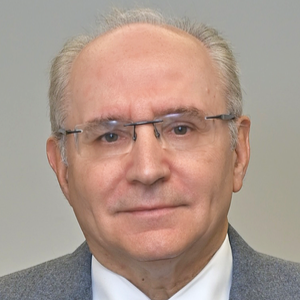Before I address the changes to the income/resource eligibility requirements for Medicaid, I wish to first remind you that as of January 1, 2023 there is still no thirty (30) month lookback (period of ineligibility) on gifts (uncompensated transfer of assets) for community (home care) Medicaid eligibility in New York. In fact, according to the New York Department of Health, the earliest the lookback will be implemented is March 31, 2024. Thus, if one transfers their assets to an Irrevocable Medicaid Asset Protection Trust (MAPT) before March 31, 2024 and applies for Medicaid home care before said date, then their transfer of assets to the trust will not create a lookback for Medicaid home care, but, only for Medicaid nursing home care. The aforesaid, when combined with the ability to utilize a pooled income community trust to shelter one’s surplus income, makes Medicaid home care a very advantageous option for seniors and the disabled that need assistance with activities of daily living in their home (including an assisted living facility).
Because of the high inflation experienced in 2022, the income and resource eligibility requirements for Medicaid have significantly increased. For example, for institutional/nursing home care, in 2023 a single applicant can have no more than $28,133 in non-IRA savings (in 2022 it was $16,800). Additionally, the spouse of a nursing home Medicaid applicant can have a maximum of $148,620 (was $137,400 in 2022) of non-IRA savings (the face amount of IRA’s/401k’s/Qualified Retirement funds are not counted for Medicaid eligibility purposes; however, the Minimum Requirement Distribution is counted as part of one’s income). The applicant for nursing home Medicaid is allowed to keep $50 of their income, the spouse of the applicant can have no more than $3,715.50 (was $3,435 in 2022). If the spouse’s income is below $3,715.50, they can take from the applicant spouse’s income to bring them to the $3,715.50 amount. If the spouse’s income is greater than $3,715.50, they must do what is known as spousal refusal.
For Medicaid home care (community Medicaid), in 2023 the applicant can have no more than $28,133 (was $16,800 in 2022) of non-IRA savings (resources) and no more than $1,563 of income (if they have more, they can enroll in a pooled income community trust to utilize said income for their needs). The spouse of the applicant can retain fifty percent (50%) of the couple’s assets up to a maximum of $148,620. If the spouse’s non-retirement saving are greater than $148,620, they will have to do spousal refusal. Married couples applying for Medicaid home care can have no more than $37,902 (was $24,600 in 2022) in combined non-IRA savings (resources) and no more than $2,106 of combined income.
Additionally, one’s home (primary residence) with an equity limit of $1,033,000 is also exempt for Medicaid eligibility purposes (was 955,000 in 2022). While the house/co-op/condo that is the primary residence is exempt for eligibility purposes so long as the Medicaid applicant and/or their spouse resides therein, it is still an asset against which Medicaid can have a lien/claim against for the value of services provided if said home is part of the Medicaid applicant and/or refusing spouse’s probate estate at the time of their passing.
While seniors that are concerned about losing their life savings to the cost of long-term care (home care and/or nursing home) are generally not concerned about having to pay estate taxes upon their demise, it is of great importance that New Yorkers be aware of said exemption as New York has an onerous estate tax.
In 2023, the NY estate tax exemption is increased from $6,110,000 (2022) to $6,580,000. Thus, with proper estate planning, a husband and wife in NY should be able to shelter $13,160,000 from estate taxes. However, if they do not plan, they can be subject to NY’s estate tax cliff and its significant taxes.
In 2023 the federal estate and gift tax exemption increased from $12,060,000 to $12,920,000, a significant increase which allows a married couple to transfer almost 26 million dollars either during their lifetime or on their death without federal estate and gift tax. However, the high exemption amount may be short lived as under current law, the exemption sunsets on December 31, 2025 and unless it is extended by law before said date, then on January 1, 2026, it returns to approximately 6 million dollars per person. The current size of the exemption presents great opportunity for the affluent to transfer millions of dollars to their children and loved one’s and thus, significantly reducing the possibility that their estate will be subjected to a federal and/or NY estate tax.
Finally, in 2023 the personal gift tax exclusion increases from $16,000 per person per year to $17,000 per person per year. Thus, another opportunity to transfer assets.
* Anthony J. Enea is a member of Enea, Scanlan and Sirignano, LLP of White Plains, New York. He focuses his practice on Wills, Trusts, Estates and Elder Law. Anthony is the Past Chair of the Elder Law and Special Needs Section of the New York State Bar Association (NYSBA), and is the past Chair of the 50+ Section of the NYSBA. He is a Past President and Founding member of the New York Chapter of the National Academy of Elder Law Attorneys (NAELA). Anthony is also the Immediate Past President of the Westchester County Bar Foundation and a Past President of the Westchester County Bar Association. He can be reached at (914) 200-1256 or at www.esslawfirm.com
















